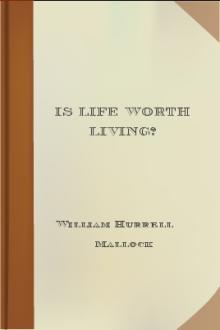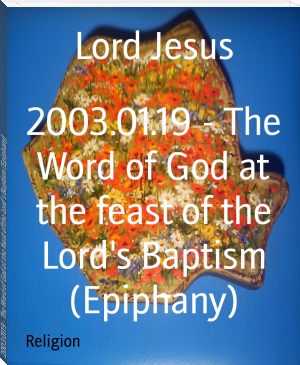Is Life Worth Living? by William Hurrell Mallock (best ereader for textbooks TXT) 📕

- Author: William Hurrell Mallock
- Performer: -
Book online «Is Life Worth Living? by William Hurrell Mallock (best ereader for textbooks TXT) 📕». Author William Hurrell Mallock
of sense is but a small part of the pleasure he actually experiences.That pleasure, as a whole, is a highly complex thing, and rests mainlyon a basis that, by a little knowledge, could be annihilated in amoment. Tell the boy what the champagne really is, he has been praising;and the state of his mind and face will undergo a curioustransformation. Our sense of the worth of life is similar in itscomplexity to the boy's sense of the worth of his wine. Beliefs andassociations play exactly the same part in it. The beliefs in this lastcase may of course be truer. The question that I have to ask is, arethey? In some individual cases certainly, they have not been. MissHarriet Martineau, for instance, judging life from her own experience ofit, was quite persuaded that it was a most solemn and satisfactorything, and she has told the world as much, in no hesitating manner. Buta part at least of the solemn satisfaction she felt in it was due to agrotesque over-estimate of her own social and intellectual importance.Here, then, was a worth in life, real enough to the person who found it,but which a little knowledge of the world would have at once taken awayfrom her. Does the general reverence with which life is at presentregarded rest in any degree upon any similar misconception? And if so,to what extent does it? Will it fall to pieces before the breath of alarger knowledge? or has it that firm foundation in fact that willenable it to survive in spite of all enlightenment, and perhaps even toincrease in consequence of it?
Such is the outline of the question I propose to deal with.
Free e-book «Is Life Worth Living? by William Hurrell Mallock (best ereader for textbooks TXT) 📕» - read online now
Similar e-books:





Comments (0)